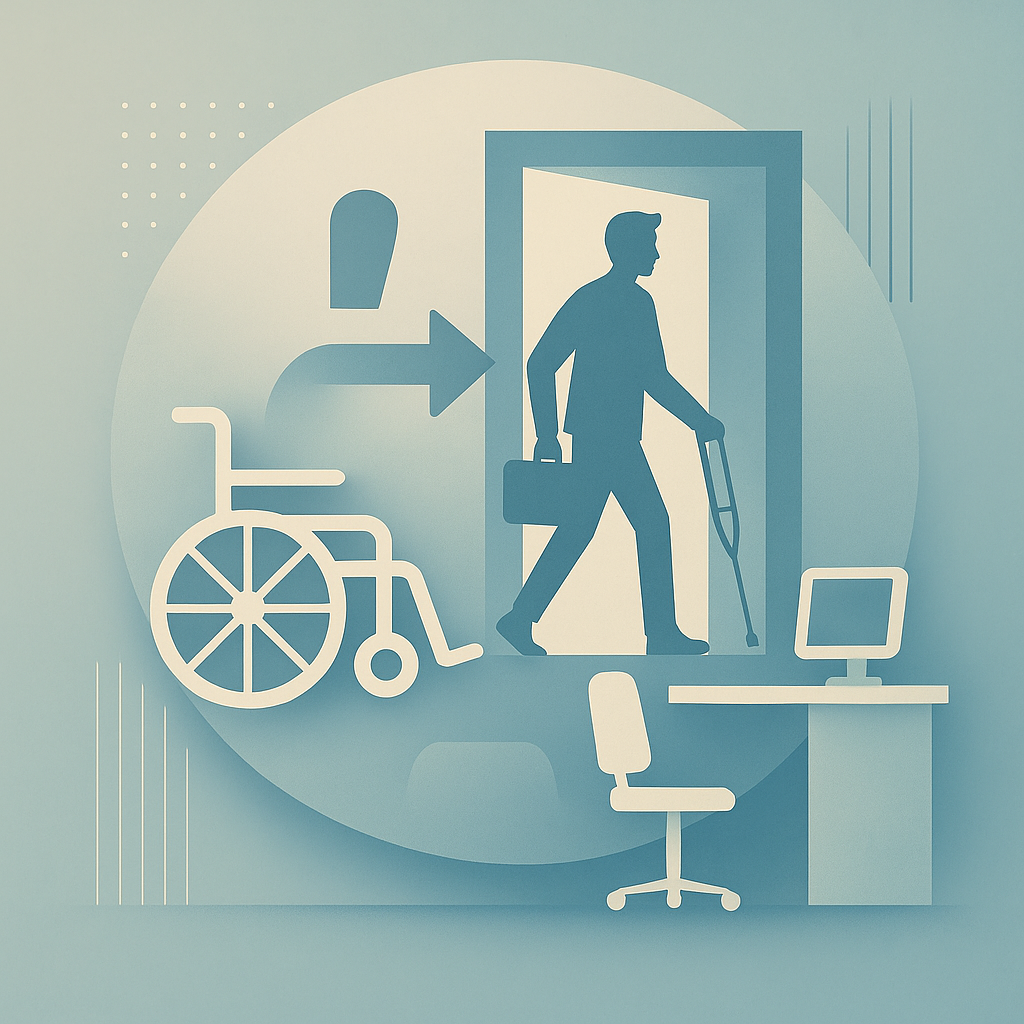Can you work part-time? What counts as “gainful employment”? How will it impact your benefits? All of this, and more!

Getting approved for long-term disability (LTD) benefits is a critical financial lifeline, but it doesn’t necessarily mean you’ll never return to work. Some claimants regain partial function or explore part-time roles. In many cases, LTD policies allow limited activity. But returning to work, even in a reduced or modified capacity, can create legal risks that many claimants don’t anticipate.
That’s because “returning” isn’t always a clear-cut event. Is the claimant truly able to maintain consistent employment? Is the employer offering accommodations that wouldn’t be available elsewhere? Is the claimant performing what used to be an in-person role remotely and with limited expectations? These nuances matter, and insurers often use them to reassess eligibility
Before accepting any role, whether it’s freelance, part-time, or even volunteer, you should know how your LTD policy treats work activity, what qualifies as “gainful employment,” and how any income might reduce or eliminate your benefits. Small missteps, especially those that contradict your stated limitations, can trigger overpayment demands, policy termination, or coverage loss.
Can You Work While Receiving LTD?
Whether you can work while receiving LTD benefits depends entirely on your policy language. Some plans include “residual” or “partial disability” clauses, which allow you to earn limited income while continuing to receive a reduced benefit. These are designed to support a gradual return to the workforce, often during recovery or while adjusting to long-term limitations. Your insurer will calculate how your new income affects your monthly LTD payment and reduce it accordingly.
However, many policies are far less forgiving. After 24 months, the definition of disability typically shifts from being unable to perform your “own occupation” to being unable to perform “any gainful occupation.” At that stage, even a small return to work can be used as evidence that you are no longer disabled under the policy.
Insurers assess not just whether you’re earning money, but what type of activity you’re engaged in, how demanding it is, and whether it can be sustained. Even unpaid work can be proof of capacity if it mirrors your past duties or involves physical, cognitive, or social tasks that contradict your medical documentation.
What Is Considered “Gainful Employment”?
Insurers typically define “gainful employment” as work that results in earnings exceeding a specified threshold, often tied to your pre-disability income or a fixed percentage of it. If your new income surpasses that threshold, your insurer may determine that you are no longer disabled under the plan, regardless of your remaining limitations.
This assessment isn’t limited to income alone. Insurers will also evaluate your job duties, hours worked, and the functional requirements of your role. Even if your income is minimal, working in a cognitively demanding or physically active job may trigger questions about your eligibility, especially if the job contradicts prior medical documentation describing your limitations.
If your claim has passed the 24-month mark and is subject to the “any occupation” standard, the bar is significantly lower. Insurers may claim you can work in a different, less demanding job than your previous one, and use your actual part-time work as justification to terminate benefits. For example, professionals who have never taught before, like lawyers or doctors, may be told that they cannot practice but can teach in a clinical setting.
How Working Impacts Your LTD Payments
If your policy permits part-time work, any income you earn will likely reduce your LTD benefit through an offset. This means your monthly LTD payments may decrease in proportion to your earnings. Some policies include incentive periods that allow you to retain a portion of your LTD benefit temporarily, but these provisions vary and are typically time-limited.
It’s also important to note that insurers often apply these offsets retroactively. If you earn income and fail to report it promptly, you may receive an overpayment and be required to repay it. In some cases, insurers may withhold future benefits until the amount is recouped, or cut benefits altogether if they determine the policy was violated.
You Must Report Any Work Activity—Even Minimal or Informal Work
Most LTD policies require claimants to report any change in work status, including part-time employment, self-employment, consulting, or volunteer work. Failing to do so can lead to allegations of fraud, denial of future benefits, or legal action.
Surveillance is not uncommon, particularly if your insurer receives evidence suggesting you’ve resumed work. A social media post, digital footprint, or comment made during a claim review can trigger scrutiny. Insurers may conduct online research, request independent medical exams, or contact your employer or medical providers. Even informal work that doesn’t appear on a W-2 or 1099 can raise red flags.
Documentation and transparency are critical, and it’s your duty to be mindful of the information you need to convey. Keep records of correspondence with your insurer, document any income received, and confirm in writing that your work falls within the allowable limits of your policy, or you risk denial.
Coordinate with Your Doctor and Keep Your File Updated
If you’re considering returning to work in any capacity, it’s critical to speak with your treating physician beforehand. Some claimants attempt to work even when doing so jeopardizes their health, often without fully discussing their symptoms with their doctor. Before issuing any statements about your ability to return to work, your physician should have a clear understanding of your condition and limitations.
Their clinical notes will likely be reviewed during your next LTD evaluation, and the insurer can easily misinterpret vague or overly optimistic language as proof of full recovery. Your provider should explicitly document your ongoing impairments, the therapeutic or trial nature of the work, and any accommodations needed to perform your duties safely.
A failed return to work can also be misused by insurers. If you try a part-time job but are unable to sustain it, your medical records must clearly reflect the medical reasons behind that outcome. Without that context, the insurer may argue that you voluntarily stopped working, rather than that your condition remains disabling.
Final Thoughts
Returning to work while receiving LTD benefits is possible, but it must be approached with caution. Insurers view any work activity as a potential signal that your condition has improved, and even small jobs or side projects can jeopardize your benefits if not disclosed and documented properly. Trust your instincts (and consult your lawyer!) before accepting a position.
Before accepting any work, review your LTD policy, speak with your medical provider, and consider consulting a lawyer familiar with disability insurance. The consequences of getting it wrong can be steep—and in some cases, irreversible. A cautious and well-documented approach can enable you to explore your capabilities without compromising your benefits.
